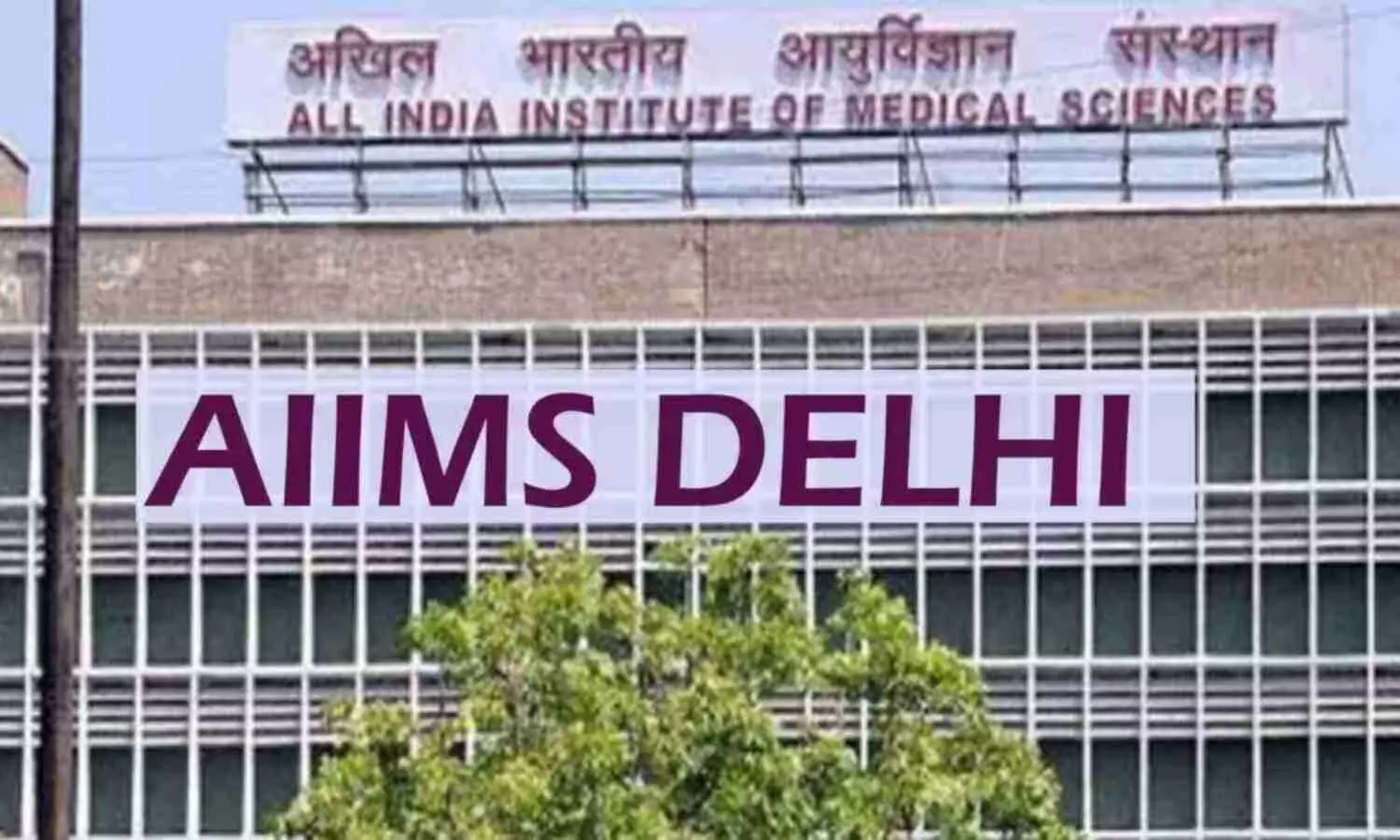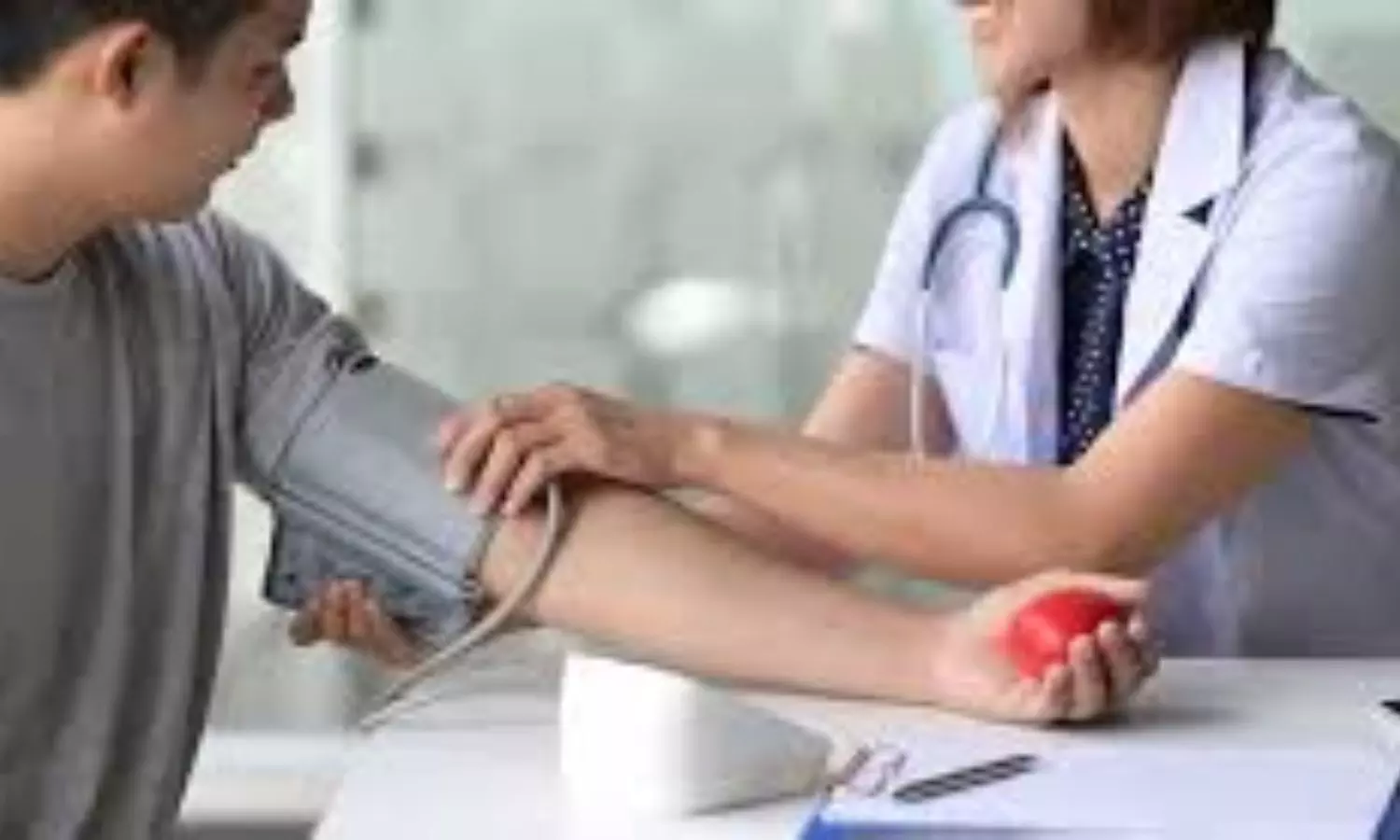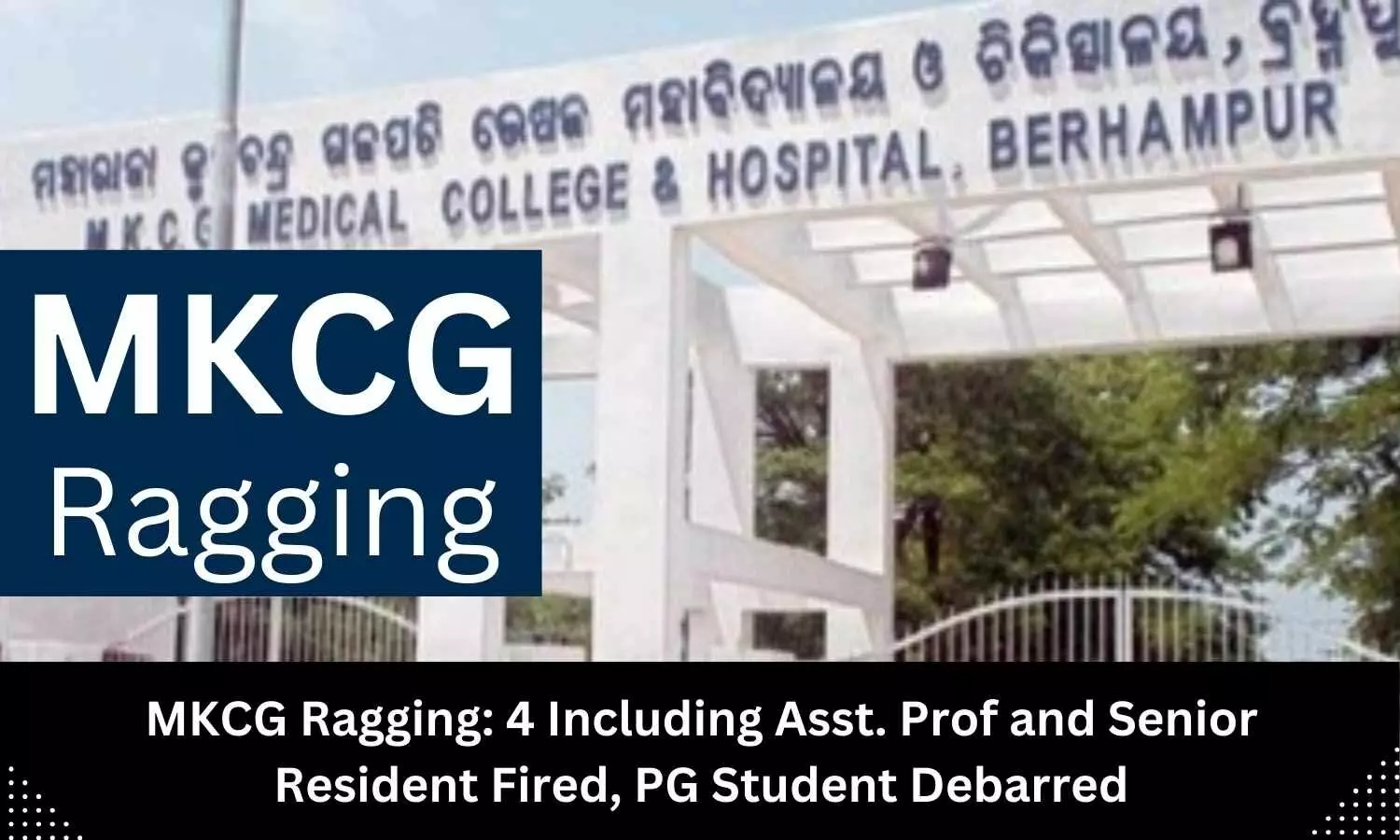Medical researcher explores economic impact of psychedelic therapy implementation
Powered by WPeMatico
Powered by WPeMatico
Powered by WPeMatico
Powered by WPeMatico
Powered by WPeMatico
Powered by WPeMatico

New Delhi: The All India Institute of Medical Sciences (AIIMS), Delhi will establish a new Critical Care Block at the Jai Prakash Narayan Apex Trauma Centre, adding 200 additional beds. This initiative aims to enhance treatment and care for seriously ill patients, according to AIIMS Director Dr M Srinivas.
Dr Srinivas in a media interaction informed the new block will have 200 additional beds, which will increase the hospital’s capacity to attend to an increasing number of patients who are being brought to the present Emergency ward requiring immediate treatment.
According to the PTI report, he said the Critical Care Block, which will be an extension of the current Emergency ward, is likely to be ready in the next two years.
It will have advanced medical technologies to treat serious and urgent cases. The current Emergency ward has 200 beds.
Also Read:AIIMS signs MoU with Wipro GE Healthcare to set up AI health innovation hub
On an average, around 700 to 800 patients visit the AIIMS Emergency on a daily basis.
Many are unable to get admission and there is a long waiting list because of the unavailability of vacant beds.
The addition of 200 beds at the new Critical Care Block will reduce the burden to some extent, he said.
Besides the Critical Care block, an Infectious Diseases Centre is also likely to be set up, news agency PTI reported.
Dr Srinivas also informed that the hospital is working on One AIIMS Referral Policy to facilitate seamless referral of patients to all AIIMS’ across India.
He further said that a teleconsultation network, which was set up during Covid is being strengthened.
Medical Dialogues had earlier reported that the All India Institute of Medical Sciences (AIIMS), New Delhi, in collaboration with the Department of Health Research (DHR) under the Ministry of Health and Family Welfare (MoHFW), organized the SARANSH workshop, a key initiative aimed to enhance regional capabilities for conducting systematic reviews across the country.
Also Read:Delhi AIIMS, IIT Delhi, UCL Forge Trilateral Partnership to Boost med tech innovation
Powered by WPeMatico

New Delhi: Artificial Intelligence (AI) is set to revolutionize healthcare at the premier health institute, the All India Institute of Medical Sciences (AIIMS) New Delhi. The institute is investing more than Rs 300 crore to develop cutting-edge digital infrastructure aimed at enhancing patient care and improving health communication.
The All India Institute of Medical Sciences (AIIMS), New Delhi, is investing more than Rs 300 crore to develop cutting-edge digital infrastructure aimed at transforming healthcare through artificial intelligence (AI), said AIIMS Director Dr. M Srinivas.
With artificial intelligence (AI) reshaping healthcare at an unprecedented pace, the All India Institute of Medical Sciences (AIIMS), New Delhi is investing more than Rs 300 crore in developing digital infrastructure, said Director Dr M Srinivas.
According to an IANS report, he said this at a meeting held at the national capital deliberating the transformative potential of AI in revolutionising health awareness and patient education empowerment.
Leaders in healthcare, technology, and policy shared insights into how AI is poised to bridge critical gaps in health communication, making information more accessible, reliable, and patient-centric.
“AI is revolutionising everything from patient care to health communication,” said Dr M Srinivas, Director of AIIMS.
Also Read:AIIMS signs MoU with Wipro GE Healthcare to set up AI health innovation hub
“We are investing over Rs 300 crore in digital infrastructure to ensure that every stakeholder — patients, doctors, and researchers — benefits from this innovation. By integrating AI, we can improve efficiency, reduce delays, and enable world-class research,” he added.
The experts at AIIMS also stressed the need to bridge the gap of misinformation by delivering accurate, easily understandable, and personalised healthcare information via AI to people across diverse demographics.
Srinivas also emphasised that leveraging AI to simplify and disseminate health information will empower patients and improve their engagement with healthcare systems, ultimately leading to better health outcomes.
“A good health system isn’t reliant on individuals. AI can play a vital role in making healthcare more accurate, compassionate, and equitable,” Dr Kavita Narayan, Senior Technical Advisor, HRH for Health Systems at the Ministry of Health and Family Welfare, news agency IANS reported.
“To truly make a difference, we must integrate technology thoughtfully and ensure collaboration between policymakers, technologists, and healthcare providers,” she added.
The experts also caution against overdependence on technology at the expense of human connection.
K.P. Kochhar, Professor and Head of the Physiology Department at AIIMS, stressed the importance of balancing innovation with empathy in healthcare.
“While AI can enhance precision and efficiency, we must preserve the human touch in healthcare. Compassion and technology must work together to create systems that prioritise the well-being of patients,” Kochhar said.
Also Read:AIIMS, CSIR join hands to advance medical research, healthcare delivery
Powered by WPeMatico

A new study published in the Journal of American Heart Association found that even within the “normal” range, elevated brachial-ankle pulse wave velocity (baPWV) is a major predictor of the development of diabetes and insulin resistance.
Adult diabetes prevalence is predicted to increase from 10.5% in 2021 to 12.2% by 2045 by impacting 783.2 million individuals worldwide. New studies have discovered that elevated vascular stiffness is a risk factor for diabetes as well as a consequence of it. Regardless of the precise metrics employed, a number of population studies have discovered that elevated arterial stiffness raises the chance of acquiring diabetes.
A greater carotid-femoral pulse wave velocity (cfPWV) was linked to a number of health outcomes, including the development of diabetes, according to the Framingham Heart Study. Yet, it is still unclear what processes underlay the link between arterial stiffness and diabetes risk. Using a large cohort of young and middle-aged Korean individuals, the study’s objective was to evaluate the risk of diabetes in accordance with baPWV, stratified by age and sex, and linked with IR.
None of the 119,170 Korean people in this cohort research, who had an average age of 39.8 years, developed diabetes at baseline. Measurements of baPWV were obtained as part of a health check. Insulin levels, glycated hemoglobin, fasting blood glucose, and questionnaire responses were gathered over a median follow-up period of 5.6 years. A flexible parametric proportional hazards model was used to assess the risk of diabetes, stratifying the data by age group (≥40 years versus ≥40 years) and sex.
A total of 5966 individuals (5.0%) were diagnosed with diabetes throughout the follow-up period. The hazard ratios for diabetes onset linked to baPWV quartiles Q2 (1171.0–1270.5 cm/s), Q3 (1271.0–1376.0 cm/s), and Q4 (≥1376.5 cm/s) were 1.06 (95% CI, 0.96–1.17), 1.25 (1.14–1.38), and 1.48 (1.34–1.62), respectively, according to a fully adjusted model (P for trend <0.001).
This connection was found to have a substantial sex-based interaction, with women having a greater chance of developing diabetes. Also, according to the homeostatic model evaluation of insulin resistance, greater baPWV quartiles were linked to a higher chance of developing insulin resistance. Overall, with a focus on baPWV as a marker, the results of this study emphasized the significance of arterial stiffness monitoring as an early indication of possible diabetes development.
Source:
Kang, J., Jeon, K., Choi, K., Choi, H., & Sung, K. (2024). Brachial‐Ankle Pulse Wave Velocity as a Predictor of Diabetes Development: Elevated Risk Within Normal Range Values in a Low‐Risk Population. In Journal of the American Heart Association (Vol. 13, Issue 24). Ovid Technologies (Wolters Kluwer Health). https://doi.org/10.1161/jaha.124.037705
Powered by WPeMatico

A new study published in the journal of Nutrition and Diabetes found that poorer glucose tolerance may be associated with eating more than 45% of daily calories after 5 p.m., especially in older persons with prediabetes or early-stage type 2 diabetes.
The mainstay of type 2 diabetes (T2D) prevention and therapy is dietary changes. Daily glucose excursions are determined by total calorie intake and meal composition. Because glucose tolerance varies throughout the day, mealtime may also be significant. Due to higher caloric intake and the use of highly processed foods, previous studies have repeatedly shown that eating later is associated with worse glucose metabolism, more body fat, and a higher BMI.
Therefore, this study was to test the hypothesis that in adults with overweight and obesity and diet or metformin-controlled prediabetes or type 2 diabetes, the associations between habitually eating later meals and having poorer glucose metabolism are independent of body weight, daily energy intake, fat mass, or diet composition.
At Columbia University Irving Medical Center (New York City), 26 adults (aged 50 to 75) who were overweight or obese, had diet or metformin-controlled prediabetes or type 2 diabetes, had a HbA1c of 5.7 to 7.5%, ate within a 14-hour window, slept for at least 6 hours, had stable weight, and had no history of bariatric surgery were enrolled.
A 14-day free-living assessment from the NY-TREAT parent study was used to gather data. 5 Automated Self-Administered 24-hour (ASA24®) recalls were used to measure food intake and meal timing, and time-stamped real-time images captured with the myCircadianClock app were used to verify mealtimes. If ≥45% of daily calories were taken after 5 p.m., the participants were classified as Early Eaters (EE) or Later Eaters (LE).
Anthropometrics and daily energy intake were same for EE and LE, however, after 5 p.m., LE’s consumption of lipids and carbs increased. Even after controlling for body weight, fat mass, caloric consumption, and food composition, LE showed greater glucose concentrations during an oral glucose tolerance test, while insulin, fasting glucose, and C-peptide did not differ across groups.
Despite excluding the individuals with type 2 diabetes, the glucose values persisted. Differences in glucose concentrations were greater in LE at 30 and 60 minutes after diabetes status correction. Overall, late dining was linked to higher calorie intake, mostly from fats and carbs, and can result in longer evening postprandial glucose excursions, which can worsen glucose tolerance.
Source:
Díaz-Rizzolo, D. A., Santos Baez, L. S., Popp, C. J., Borhan, R., Sordi-Guth, A., Manoogian, E. N. C., Panda, S., Cheng, B., & Laferrère, B. (2024). Late eating is associated with poor glucose tolerance, independent of body weight, fat mass, energy intake and diet composition in prediabetes or early onset type 2 diabetes. In Nutrition & Diabetes (Vol. 14, Issue 1). Springer Science and Business Media LLC. https://doi.org/10.1038/s41387-024-00347-6
Powered by WPeMatico

As Ragging incidents continue to surface at MKCG Medical College in Berhampur, with the latest occurring on December 21, the medical college is now moving to take stern action in the matter. In the recent most case of ragging , four doctors and a PG student were alleged to have physically assaulted a postgraduate surgery student in the institute’s canteen, leaving him with bleeding injuries.
In response to the complainant’s statement and substantial evidence, the college authorities suspended four doctors, including an assistant professor and three senior residents from their services, and debarred a second-year postgraduate resident from the hostel for 6 months on disciplinary grounds. In addition, the police have issued notices to the accused after registering a case in this regard.
For more information, click on the link below:
Odisha Medical College Ragging: One Assistant Professor, 3 Senior residents handed suspension orders
Powered by WPeMatico
